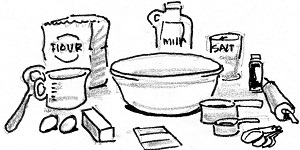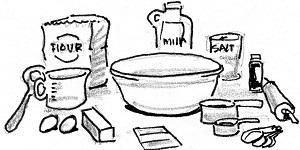

“Guard against the leaven of the Pharisees and Herod” (Mark 8:15).
Jas 1:12-18; Mark 8:14-21
No one seems to understand Jesus in Mark’s Gospel. The Pharisees refuse to accept his miracles and gracious teaching as proof that he is from God. The crowds follow him for bread and spectacle. His own disciples are along for the ride because they think he is the royal messiah who will expel the Romans and save Israel, but they do not grasp his teaching or the implications of following him.
In today’s Gospel, as they cross the lake in the boat, Jesus tries to warn the disciples of the real intentions of the Pharisees and the crafty maneuvering of Herod, “that fox,” who has already beheaded John and now has his spies everywhere. Jesus’ enemies are at work behind the scenes, in the dark, under cover. Their sinister plotting is like yeast, tasteless, odorless and invisible as it pervades the dough. Every encounter with the Pharisees is oozing with guile and hypocrisy. Herod projects threats and an atmosphere of foreboding. Jesus says, “Watch out, guard against the leaven of the Pharisees and of Herod!”
The disciples think Jesus is talking about whether they have enough bread. Exasperated, he reviews with them the recent multiplication of loaves to feed the hungry crowds. There is always enough. This is what God’s leaven does; it gives life. But there are other kinds of leaven that bring death. They are hidden, pervasive and insidious as they slowly seduce the unwary and then poison them. Why are his disciples worried about having enough bread? What they need to worry about is being deceived. As he says this, was Jesus looking at Judas? Is his head down because he does understand the leaven Jesus is describing?
The Letter of James understands how the leaven of sin and temptation works by appealing to our desires, slipping into our imaginations when we are idle or over-confident. It begins small, then grows. Once sin is conceived in our hearts, it gestates there until it gives birth to death. We wonder how whole cultures can be infected by lies, by fear or the need to go to war, by prejudice so deep it blinds us to the humanity of others in need. The leaven of the Pharisees creates class privilege and elitism. The leaven of Herod makes competition for wealth and power all-important and the destruction of rivals necessary to protect the status quo.
Jesus taught the Beatitudes as the antidote to this leaven, to displace it with the leaven of sincerity and truth, light and salt, justice and peace. But they have to be lived to demonstrate their power to change society. A revolution in the world must first be a revolution in the hearts of Jesus’ followers. He led the way by his death on the cross, becoming the firstfruits of the New Creation.
We must now be the starter dough, the pervasive and irresistible proof that love makes everything possible. Then, with the grace of God, we can be the change that makes transformation believable and possible.
Advertisement




